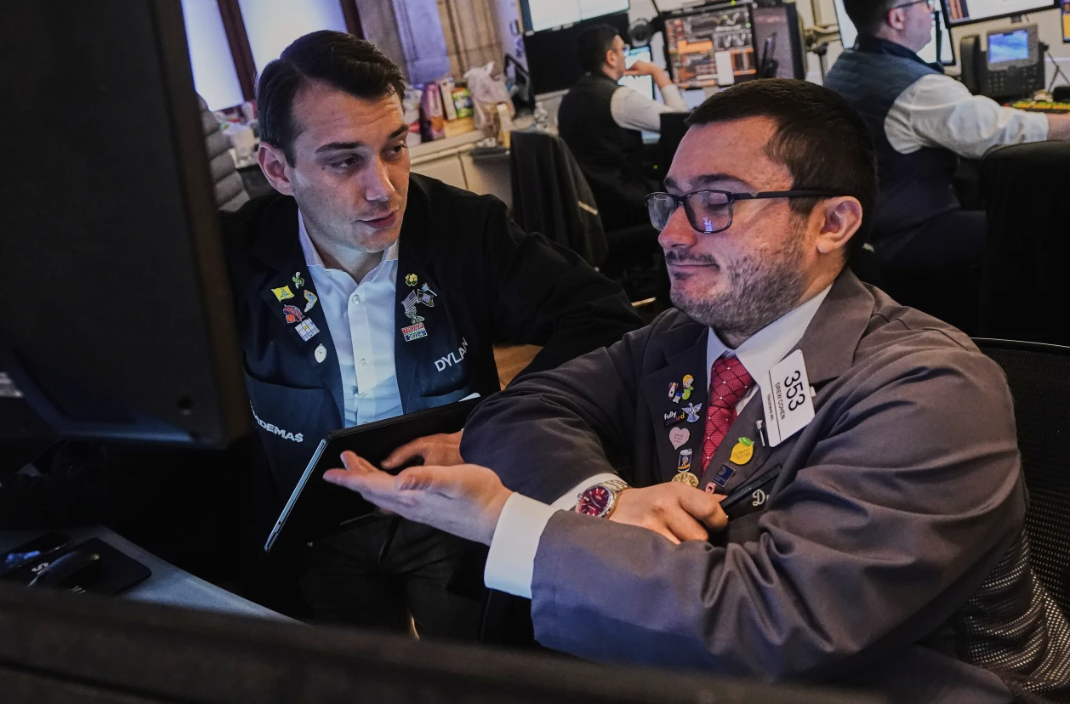U.S. stocks were climbing modestly on Monday as officials from the United States and China began discussions aimed at resolving long-standing trade disputes. Investors are hopeful that the talks could pave the way for an agreement that eases tariffs and helps steer the global economy away from a recession.
By early afternoon, the S&P 500 was up 0.3%, while the Dow Jones Industrial Average had gained 58 points, or 0.1%. The Nasdaq composite rose by 0.5%.
The high-level meetings in London are focused on a range of contentious issues that have strained relations between the two economic superpowers. Optimism surrounds the possibility of a deal that could scale back tariffs, which have been paused for now, and restore smoother trade flows for everything from electronics to industrial machinery.
Hopes that President Donald Trump might reduce tariffs after reaching international trade agreements have helped drive the S&P 500’s strong rebound. The index has surged back to within 2.1% of its record high set in February, recovering nearly all the ground lost after a 20% drop sparked by Trump’s sweeping tariff announcement on what he dubbed “Liberation Day.”
Strategists at Deutsche Bank, including Parag Thatte and Binky Chadha, noted that this may be one of the fastest recoveries from a market shock on record. Historically, it takes about two months for stocks to bottom after a spike in volatility, followed by several more months to recover. This time, the full cycle unfolded in under two months.
Despite the gains, uncertainty about the trade outcome kept market activity relatively subdued.
Among notable movers, Warner Bros. Discovery rose 0.5% after announcing plans to split into two separate entities. One will include Warner Bros. Television, HBO Max, and studio-related brands, while the other will retain CNN, TNT Sports, and various global entertainment and digital brands.
Quantum computing firm IonQ advanced 3.3% following its agreement to acquire Oxford Ionics for roughly $1.08 billion, mostly through stock. The merger is expected to strengthen both companies’ technologies and potentially outpace classical computing capabilities.
Tesla showed little movement after recent volatility. The electric vehicle maker had dropped last week amid a falling out between Elon Musk and Donald Trump but recovered 0.4% on Monday. Analysts warn the soured relationship could have broader consequences, especially for Musk’s companies like SpaceX, which rely on government contracts. Shares of Rocket Lab, a potential competitor to SpaceX, jumped 7.2%.
In overseas markets, European indexes dipped slightly after earlier gains in Asia. In China, stocks rallied despite signs of economic cooling. Exports in May grew by 4.8% year-over-year, down from April’s 8.5% jump. Additionally, consumer prices in China slipped 0.1% last month, marking the fourth straight month of deflation. Markets responded positively, with Hong Kong’s Hang Seng up 1.6% and Shanghai’s index gaining 0.4%.
In bond markets, the yield on the 10-year Treasury slipped to 4.48% from 4.51% on Friday. A Federal Reserve Bank of New York survey showed that consumers expect slightly lower inflation in the future, offering a bit of reassurance to the Fed.
The central bank has held interest rates steady as it monitors the impact of tariffs on inflation and growth. Economists anticipate a report on Wednesday will show U.S. inflation accelerated to 2.5% in May from 2.3% the previous month.














